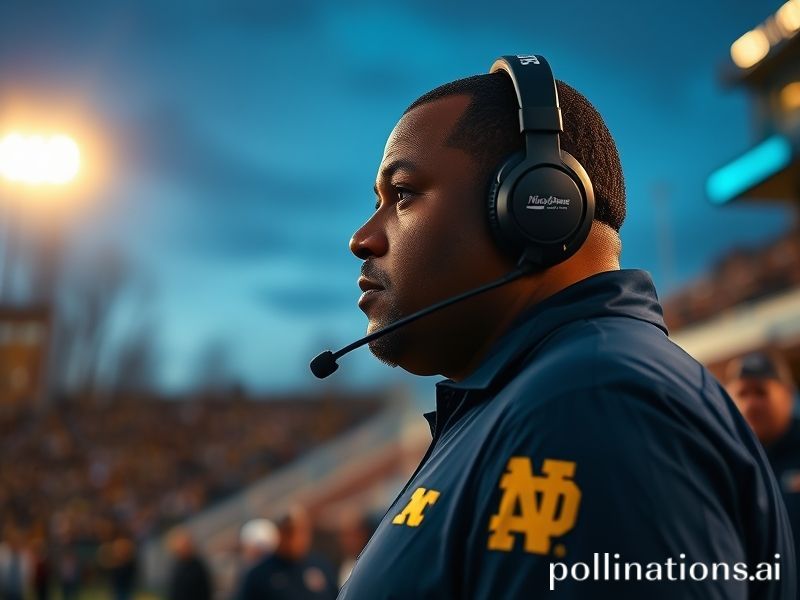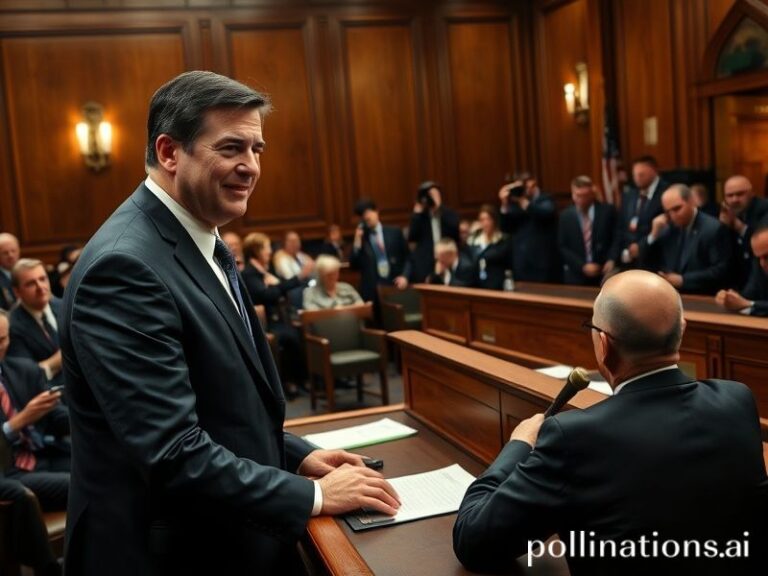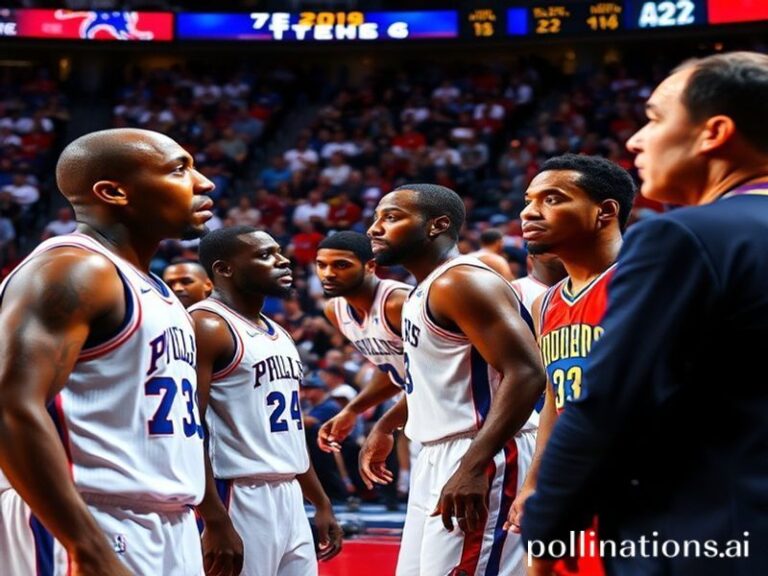Gridiron Diplomacy: How Marcus Freeman Became the World’s Most Unlikely Soft-Power Weapon
Marcus Freeman’s Sideline Swagger: How an Irish-American Coach Became the Accidental Face of Soft-Power Diplomacy
Paris, 28 November – Somewhere between the Seine’s grey drizzle and the perpetual gridlock on the Boulevard Périphérique, a curious diplomatic cable landed on the desk of a junior attaché at the Quai d’Orsay. Subject line: “Freeman, Marcus – possible cultural asset.” The brief noted that the 38-year-old Notre Dame head football coach had just wrapped a primetime victory over the US Naval Academy while wearing a kelly-green blazer loud enough to make leprechauns file noise complaints. The French, ever alert to any whiff of soft-power projection, wanted to know why 20 million Chinese viewers had tuned in to watch American college kids collide at 3 a.m. Beijing time for a sport most of them have never played.
Welcome to the age when a linebackers coach from Ohio can unwittingly become a global brand ambassador—proof that the American talent for weaponizing entertainment remains its most renewable export. Freeman, raised by a single mother in the Rust Belt, now commands a salary roughly equal to the GDP of Vanuatu. His weekly press conferences are simul-translated into Portuguese for São Paulo sports bars and into Korean so Seoul office drones can pretend they understand the concept of “run-pass option” while microwaving instant tteokbokki. All this for a man whose primary job is convincing teenagers that calculus homework is worth sacrificing cartilage.
Internationally, Freeman’s ascent is less about X’s and O’s and more about optics. The United States has spent two decades bombing the Middle East with mixed reviews; meanwhile, a 250-pound defensive end named “Foskey” somersaulting into the end zone in South Bend does more for America’s likability numbers in Amman than any USAID hashtag campaign. State Department veterans still nursing PTSD from the Freedom Fries era now watch Freeman’s locker-room dance-offs and quietly admit that exporting choreographed joy is cheaper than exporting democracy—though both tend to blow out knees in the long run.
Europe, naturally, is torn. Brussels bureaucrats, fresh from drafting the 400-page Digital Services Act, have convened an emergency working group to determine whether Notre Dame’s leprechaun mascot constitutes cultural appropriation of Gaelic folklore or merely a harmless Midwestern fever dream. The Irish ambassador, sipping a tepid espresso in a city that still can’t make a decent cup of tea, confided to this correspondent that he’d trade three Brexit-induced Northern Ireland protocol headaches for one Freeman recruiting class. “At least the kids leave with degrees,” he sighed, “which is more than we can say for the lads selling crypto in Dublin docklands.”
In Africa, the narrative turns darker and therefore more lucrative. Lagos streaming platforms have begun offering cut-rate packages featuring Freeman’s post-game speeches as motivational content for start-up founders who need to believe that 18-year-olds from Florida can indeed tackle their burn rate. Nairobi gyms loop highlight reels on mute, substituting Afrobeats for the original commentary because Swahili play-by-play is hard to translate when nobody knows what a “mesh concept” is. The continent’s telecom giants quietly bankroll the broadcasts; nothing sells 5G subscriptions like slow-motion replays of a safety blitz that could only happen on a field funded by NBC and, indirectly, Comcast’s quarterly earnings.
Back in Washington, think-tankers who once wrote white papers on counter-insurgency now host panel discussions titled “Freeman Doctrine: Branding National Resilience Through Special Teams.” Tickets cost $350 and include a boxed lunch nobody eats because everyone’s on Ozempic. The consensus: Freeman’s multicultural roster—Polynesian nose guards, Texan quarterbacks, a kicker from Melbourne who grew up on Aussie Rules—offers a more coherent integration model than Congress has produced since 1965. One fellow from Brookings was overheard muttering that if the Department of Homeland Security simply adopted Notre Dame’s depth chart, the southern border would self-organize into two-deep coverage.
None of this, of course, occurs to Freeman himself, who after Saturday’s win answered a question about playoff rankings by quoting Nipsey Hussle and apologizing for sweating on the podium. Somewhere in the metaverse, a deep-fake of him is already hawking protein powder to Indonesian teenagers. Meanwhile, the actual Freeman took his team to Mass, then boarded a chartered 747 whose carbon footprint could power Liechtenstein for a month.
And that, dear reader, is how the modern world works: an accidental empire exporting accidental hope, one 40-yard dash at a time, while the rest of us refresh our phones and pretend we’re not impressed.







